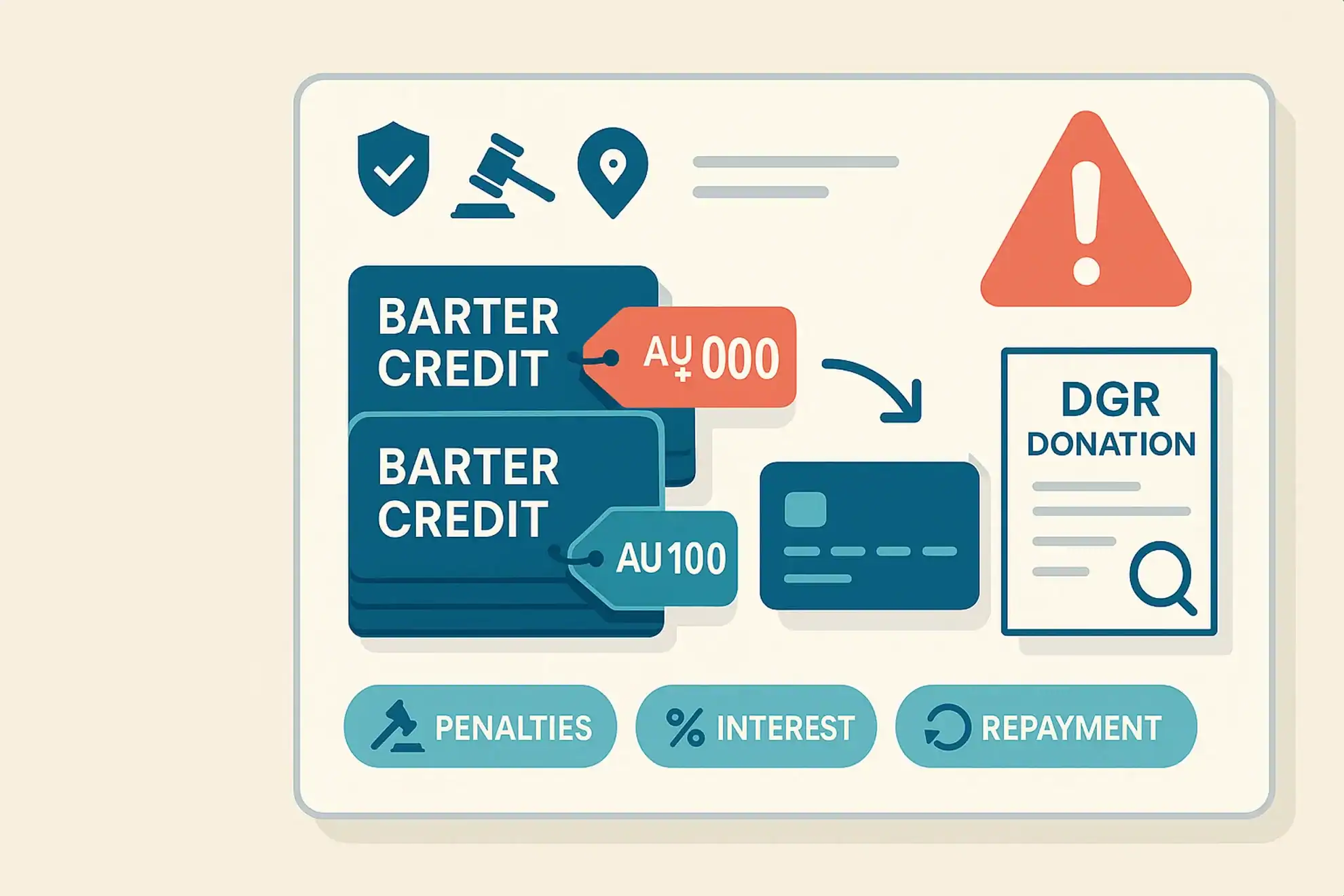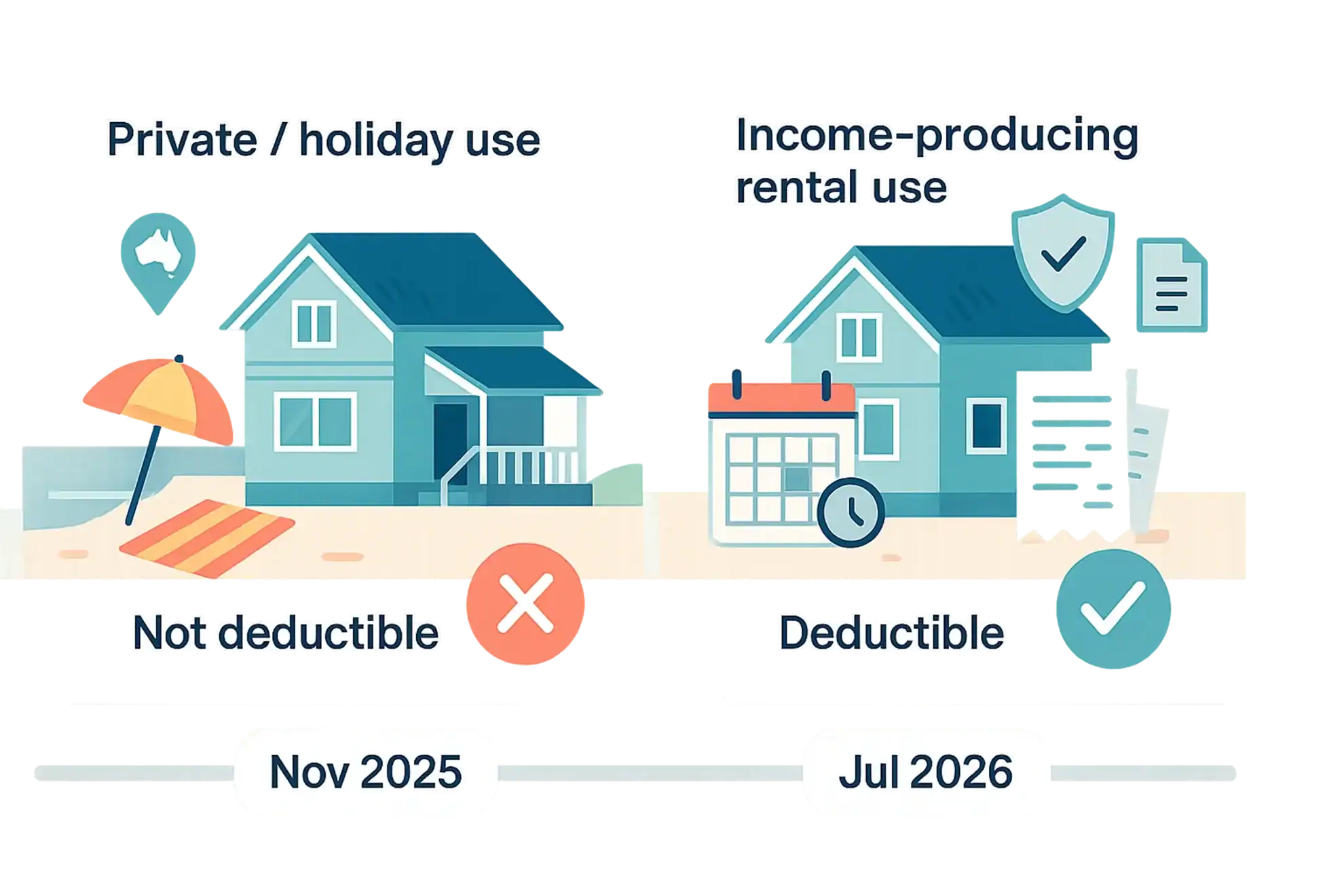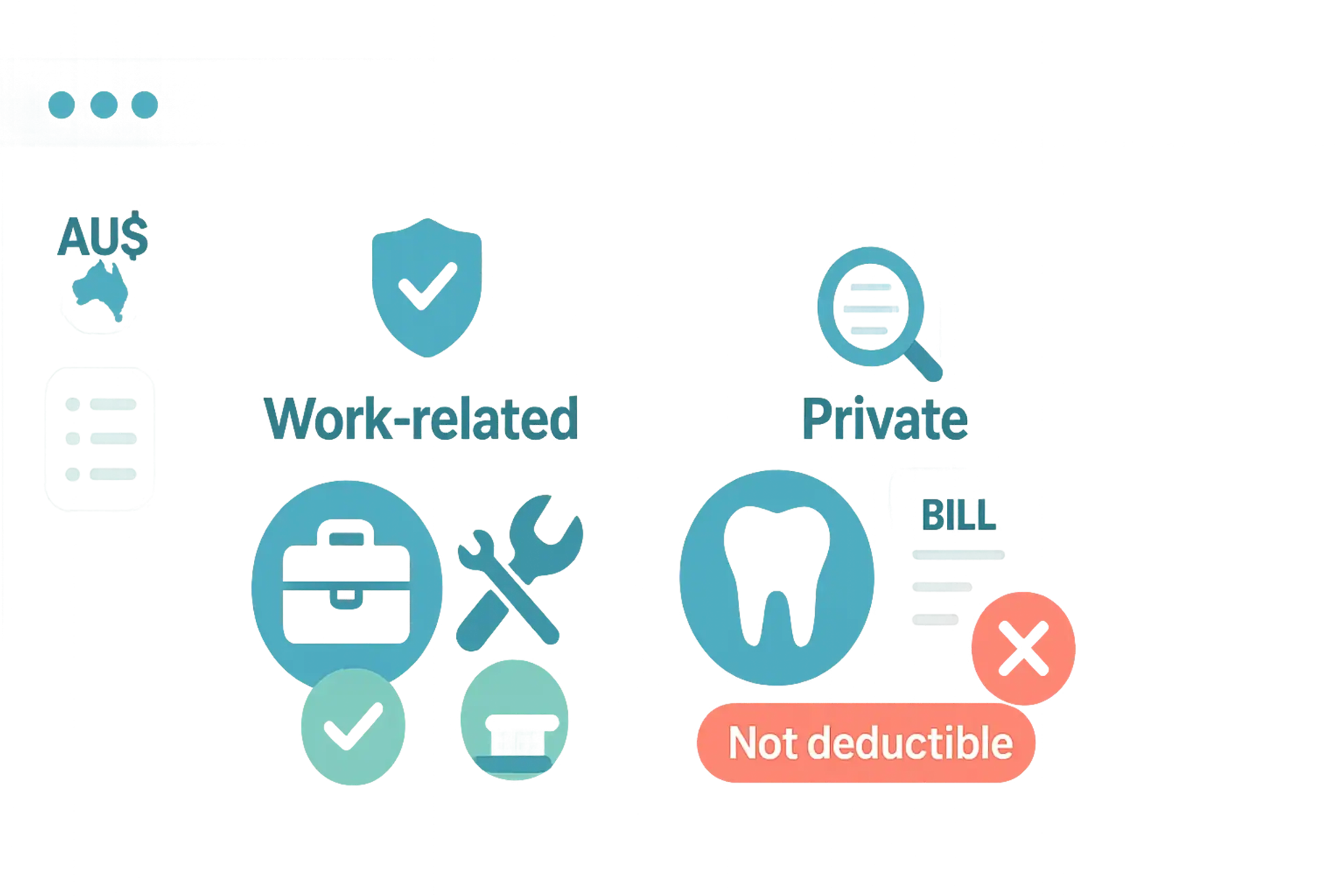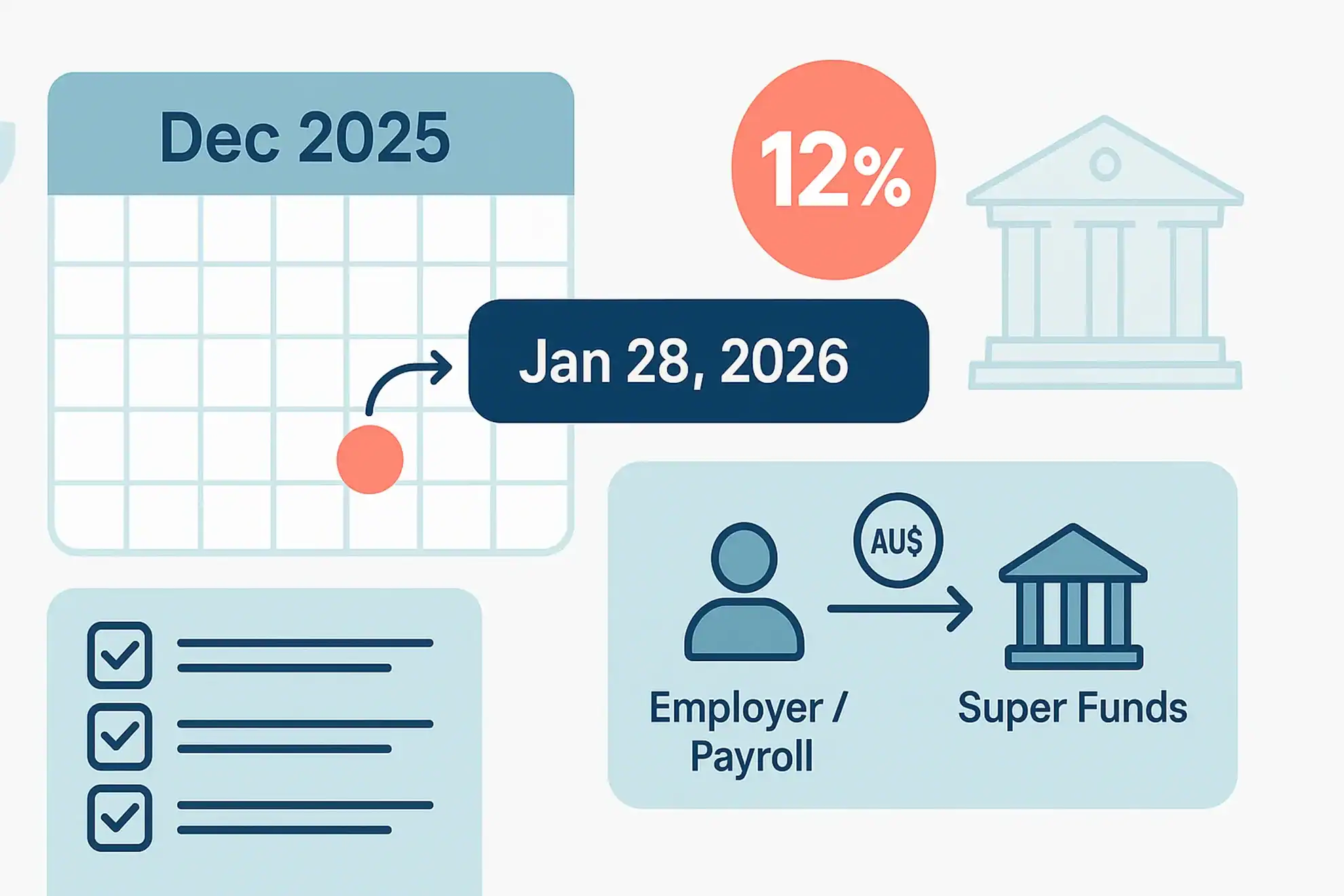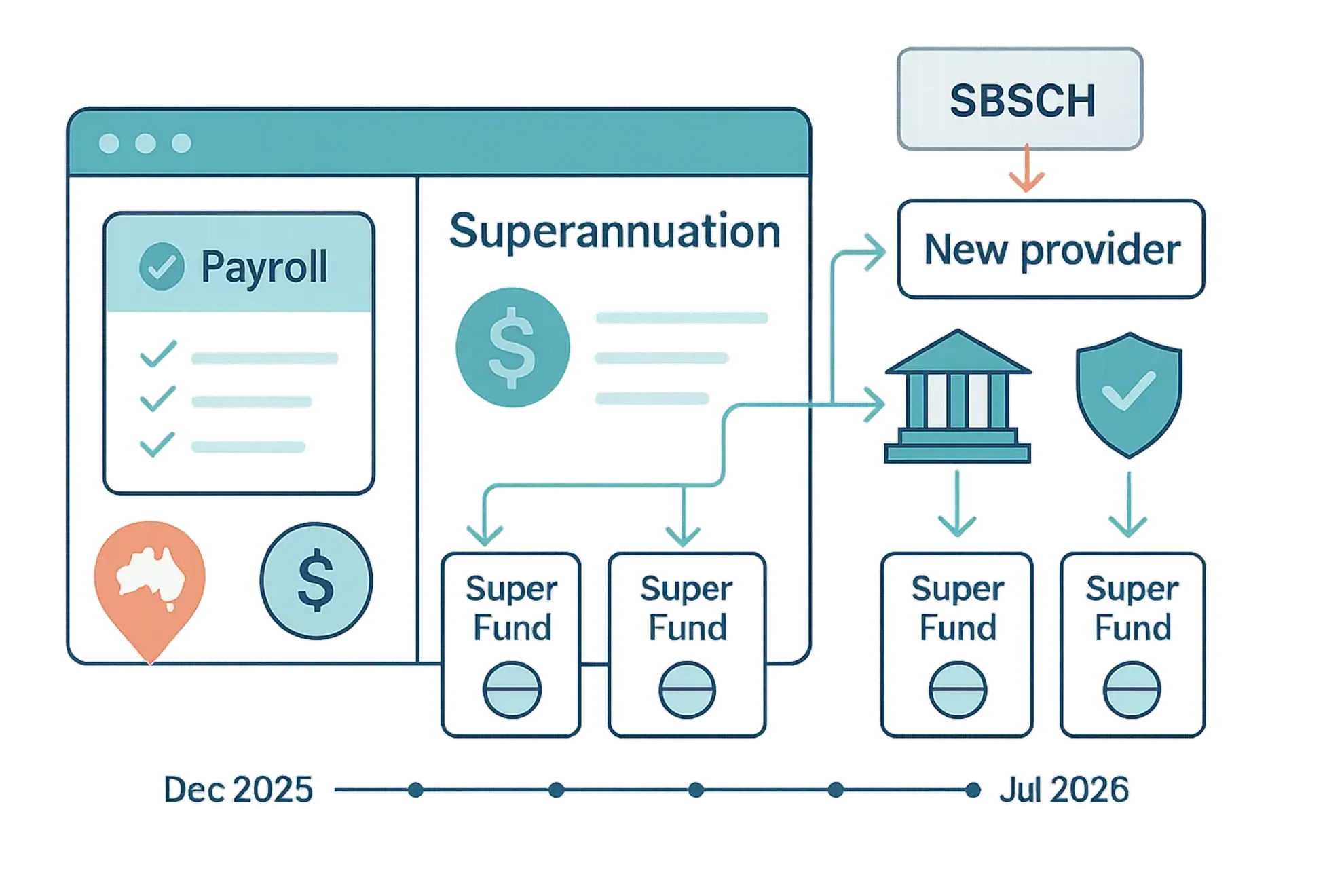Latest News
ATO warns about barter credit tax scheme
The ATO is warning the community to steer clear of an emerging tax scheme involving barter credits — a type of alternative currency used in some business networks. A tax scheme that involves artificially inflating deductions for donations of barter credits to deductible gift recipients (‘DGRs’) is on the rise. While it may seem enticing, […]
ATO’s new approach to holiday home expenses
The ATO has announced that it will take a somewhat different approach in relation to holiday home expenses that are claimed in relation to holiday homes. Broadly, the ATO now takes the view that, if a taxpayer’s rental property is also their holiday home, certain deductions relating to holding it will be completely denied (rather […]
Australians call out tax dodgers in record numbers
The ATO has hit a major milestone of over 300,000 tip-offs from the community about tax dodgers and other dishonest behaviours since 1 July 2019. In the 2024/25 financial year alone, almost 50,000 red flags were raised by members of the community who spotted something suspicious. Most of the tip-offs received related to shadow economy […]
Dental expenses are private expenses
The ATO has been seeing a number of deduction claims for dental expenses this tax time. Dental expenses are private expenses, including preventative and necessary dental treatment, medical expenses and other costs relating to client’s personal appearance (such as teeth whitening, makeup, skin care, shaving products and haircuts) are not deductible. These expenses are generally […]
Reminder of December 2025 Quarter Superannuation Guarantee (‘SG’)
As noted in the previous article, employee December 2025 Quarter Superannuation Guarantee must be received by the relevant super funds by 28 January 2026. If the correct amount of SG is not paid by an employer on time, they will be liable to pay the SG charge, which includes a penalty and interest component. […]
Alternative providers to the SBSCH
Employers should start preparing for the permanent closure of the Small Business Superannuation Clearing House (‘SBSCH’) on 1 July 2026. By acting now to find an alternative service, employers will: have an established process in place to pay super guarantee (‘SG’) for the March and June quarters (if they currently pay quarterly); reduce the risk […]
Does your SMSF need a valuation?
The rules around the valuation of assets held under an SMSF have seen a lot of changes over the years. The requirement to consider valuing SMSF assets at market value when preparing the annual financial statements of the fund was one of the most significant and controversial of these changes. The use of market value accounting for […]
SMSF compliance for 2016 – 2017
The ATO has announced the approach it intends to take over 2016-17 with regard to SMSF compliance. It says trustees will see some key shifts in the ATO’s emphasis, both in terms of the activities it undertakes and the levels of enforcement action it applies. The ATO says its key focus areas will be: to […]
Setting up an SMSF: What you need to know
There are tempting tax incentives for Australians to save for their retirement via the superannuation system, with an array of choice between superannuation funds that can manage your savings for you, but also the do-it-yourself option of a self-managed superannuation fund (SMSF). Managing your own retirement savings however is a huge responsibility and one that should […]
SMSF trustee with the travel bug? How to keep your fund compliant.
Are you the trustee of an SMSF but also a travel aficionado? Nothing wrong with that; however trustees need to be aware that there can be negative consequences if you are out of the country for too long. If a trustee relocates overseas for an extended period, the residency status of the SMSF, its compliance […]
Deducations For Finance on a Rental Property
Interest can be claimed for the cost of funds borrowed to purchase a rental property and to meet maintenance costs or running expenses while the rental property is being let (or is available to be let) under a commercial arrangement to generate assessable income. In these circumstances the interest paid is deductible even if it exceeds […]
Treasury Amends LRBA Requirements For SMSFs Again
As if the new transfer balance cap rules were not complicated enough, the government has passed legislation that complicates it further where an SMSF starts a limited recourse borrowing arrangement (LRBA) from 1 July 2017. Treasury was concerned that some trustees would try to get around the $1.6 million transfer balance cap (TBC) through the […]

